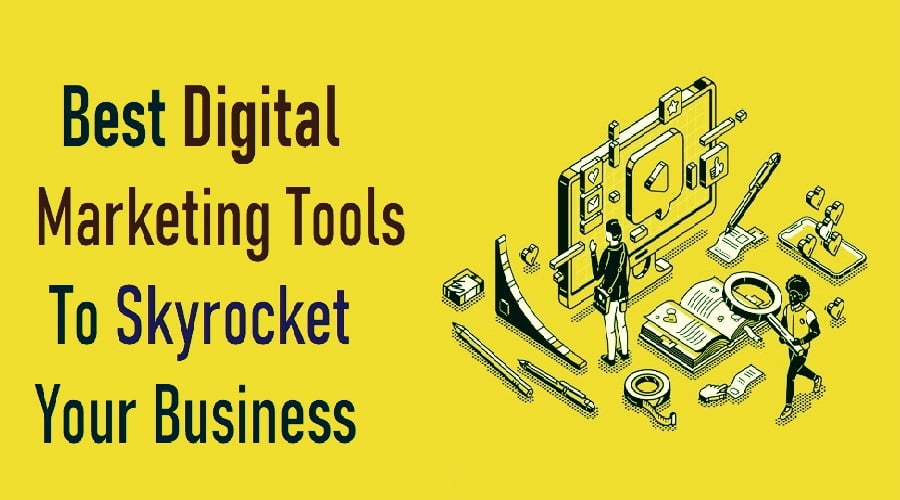Choosing the right business partner is an important decision that can determine the success or failure of your business. Here, we will share some ideas that can help you with one of the most important decisions you must make to develop a business.

How to Choose the Right Business Partner for Your Startup?
There is no doubt that choosing your business partners is one of the most important decisions that you will make at the beginning of the company and the launch of your emerging pioneering project.
Choosing a business partner is not easy at all. There must always be a way to understand each other. Every business process requires open communication channels to have a healthy business relationship.
Having the support of one or more associates will not only strengthen your financial capacity but will also allow you to cover functions and tasks in a shorter period of time, in addition to providing experience and skills to achieve objectives and goals for the business.
Establishing a successful business relationship depends mainly on trust and the ability to communicate since over time you must have a link that allows you to make decisions or shared risks.
A fundamental key to choosing a partner is to find someone who shares your vision and enthusiasm for developing the project you want to undertake. The right partner is someone who not only shares your interests, he is with whom you can establish a bond that exceeds the commercial relationship.
To choose your business partner, make sure your principles and priorities are aligned and agree on the compromises that each of you may make.
Pay attention to the qualities of your partner, he should be a humble person who does not transcend the other opinion, but rather is rational during the discussion of various decisions.
Also, look for a different partner than you to ensure different points of view that open up new horizons for the development of the project.
How to Find a Business Partner for a Startup
Easy ways to find the right partner in forming a business partnership include:
1. Someone You Already Know
Many people tend to work with friends, spouses, close family members, or other people who play an important role in their lives.
If you know what a friend can contribute and have a deep understanding of your business successes, your friend can be an excellent business partner. You also have an existing relationship and your ability to communicate effectively can have a positive impact on your employment relationship.
If you want to offer a partnership to a former co-worker, be sure to carefully examine the agreements before starting a business together.
2. Find a Business Partner Through Your Network
Expanding your network can help you find the right business partner. Many entrepreneurs partner with people they know in networking groups. Look for potential business partners at professional or industry association meetings.
For example, if you plan to start a web design business, you can find a potential partner at a meeting for web designers or a networking center for Internet professionals. You can also find potential business partners in rotating groups and business incubators.
3. People You Meet Online
You can find potential business partners on social networking sites (eg Facebook, Twitter, and LinkedIn) and online job directories. Some people have even used online marketplace sites to find compatible partners for their businesses.
This critical business decision takes time. Don’t be too quick to judge, and make sure you have a good idea of how the two of you can work together before signing a partnership agreement.
7 Critical Considerations for choosing a Right Business Partner
Your considerations for choosing the right business partner will vary depending on your industry and your requirements. Regardless of your field of work, there are a certain number of things that you should carefully consider before choosing your business partner.
1. Define your basic principles
The best thing to start with when looking for a significant partner is how well they align with your uncompromising principles. These principles are the best expression of your priorities and goals and will dictate how you make decisions in the future.
Focus on the principles that distinguish you from others, and do not waste a lot of time in the search for perfection, and reinforce them with a partner who shares the same principles as you to double the impact of your distinction from your competitors.
Excellence is the most important thing that will drive you to success and stability at the beginning of your entrepreneurial journey.
2. Create a perfect business partnership manifesto
Once you’ve explicitly identified your core principles, find the things you’d be willing to compromise on, as these will determine your ability to accommodate your partner.
For example, if you value frankness, you should have room to hear criticism and you should have a high ability to handle the consequences of your partner’s frankness with your customers. And if you value speed in performance and delivery, you should have a high ability to keep up with your partner in his work style.
Knowing the limits of your bargaining power also requires introducing your partner in order to define the features of what is permissible and what is prohibited in your professional relationship. Clarity of the determinants of this relationship at the beginning of the partnership will avoid any future disputes, or at least reduce the areas of misunderstanding.
3. Evaluate your strengths and weaknesses
We all as human beings have strengths and weaknesses. Know your weaknesses frankly and transparently, and do not overestimate your weaknesses and deceive yourself before others. The most successful entrepreneurs are those who surround themselves with people who can multiply their strengths and mitigate their weaknesses. Choose a partner who inks your weakness and strengthens you.
4. Decide what kind of relationships you want to create
Do you want to enjoy a close relationship? Or do you want a partner who does his part of the work? Do you want a self-reliant partner that you trust in his ability to make all the necessary decisions in order to complete his business, or do you want him to depend on you?
All the answers are correct, but like all of the above, a healthy partnership requires that you make your expectations of your partner unambiguously clear at the beginning of your partnership.
5. Share with those who are humble with you
Your field of work may require your partner to have self-confidence and a high ability to persuade your customers, but do not share with those whose self-confidence seeps behind the walls of your company.
Partners should be very humble before themselves and have a great ability to hear different and new opinions and to adapt quickly to the exigencies of the work of the startups.
Soon after launching your project, you will discover that everything you and your partner planned may change when the projection is tested.
Your ability to admit error and be humble before it will enhance your ability to weather market surprises.
6. Harness the power of passion and enthusiasm
It is not necessary for you and your partner to work 12 hours a day, every day of the week for your company to succeed, but the most important thing is that you choose a partner who equals you in the effort and is willing to keep up with you in increasing the working hours when needed.
Past experiences reveal that one of the most important causes of disputes between partners is a feeling that one of them is working more than others, which leads to a suffocating grievance that may lead to the dissolution of the partnership.
7. Handle conflicts with your business partner
A startup is not without internal conflicts between partners or employees, or external difficulties in its journey to success.
Your early thinking of ways and methods of addressing these difficulties and disagreements will save you valuable time when you need to come up with effective solutions when they occur.
Spending the time and effort necessary to reach common formulas with your partners at the beginning of your journey is a successful investment and will narrow the areas of disputes that may arise with you in the future.
Final word
A business partner can become your greatest asset or your worst liability. Deciding whether or not to do business with someone else can be one of the most important business decisions you have ever made. Deciding who you are going to do business with can be just as important.
If you weigh the advantages and disadvantages of having a business partner and think carefully about your reasons for choosing a business partner, you can help you find the right person to outsource your business.
Once you make the decision to find a business partner, start expanding your network online and offline to find the best partner for your business.
Take the time to make up your mind, to make sure you find a business partner that really suits you, your business ideas, and your goals.



